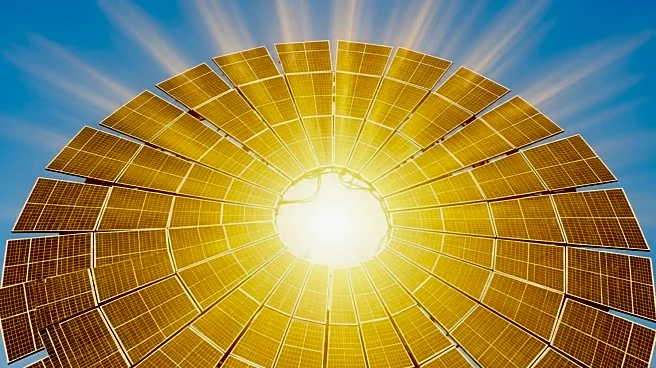What is the story about?
What's Happening?
On Sunday, a nationwide event known as 'Sun Day' will take place, celebrating solar power and renewable energy across the United States. More than 450 events are planned, including electric vehicle parades, church sermons, and house tours showcasing solar technology. The initiative, inspired by climate activist Bill McKibben, aims to highlight the decreasing costs and increasing accessibility of solar energy, which has become the world's cheapest form of energy. Susan Millar, a participant in Madison, Wisconsin, is hosting an open house to demonstrate her home's solar panels and other renewable energy installations.
Why It's Important?
The 'Sun Day' event underscores the growing importance of renewable energy in combating climate change and reducing reliance on fossil fuels. As solar power becomes more affordable, it offers a viable solution for reducing carbon emissions and promoting sustainable living. This nationwide celebration reflects a shift in public awareness and support for clean energy initiatives, potentially influencing policy decisions and encouraging further investment in renewable technologies. The widespread participation across nearly all 50 states indicates a strong grassroots movement advocating for environmental change.
What's Next?
Following 'Sun Day,' organizers and participants may push for increased legislative support for renewable energy projects. The event could inspire more individuals and communities to adopt solar technology, further driving down costs through economies of scale. Additionally, the success of 'Sun Day' might lead to similar events in the future, fostering a culture of sustainability and environmental responsibility. Stakeholders, including policymakers and industry leaders, may respond by prioritizing renewable energy in their agendas.
Beyond the Headlines
The celebration of solar power during 'Sun Day' also highlights ethical considerations regarding energy consumption and environmental stewardship. As more people embrace renewable energy, there may be cultural shifts towards valuing sustainability and reducing ecological footprints. This event could also spark discussions on the equitable distribution of clean energy resources, ensuring that all communities have access to the benefits of solar technology.















